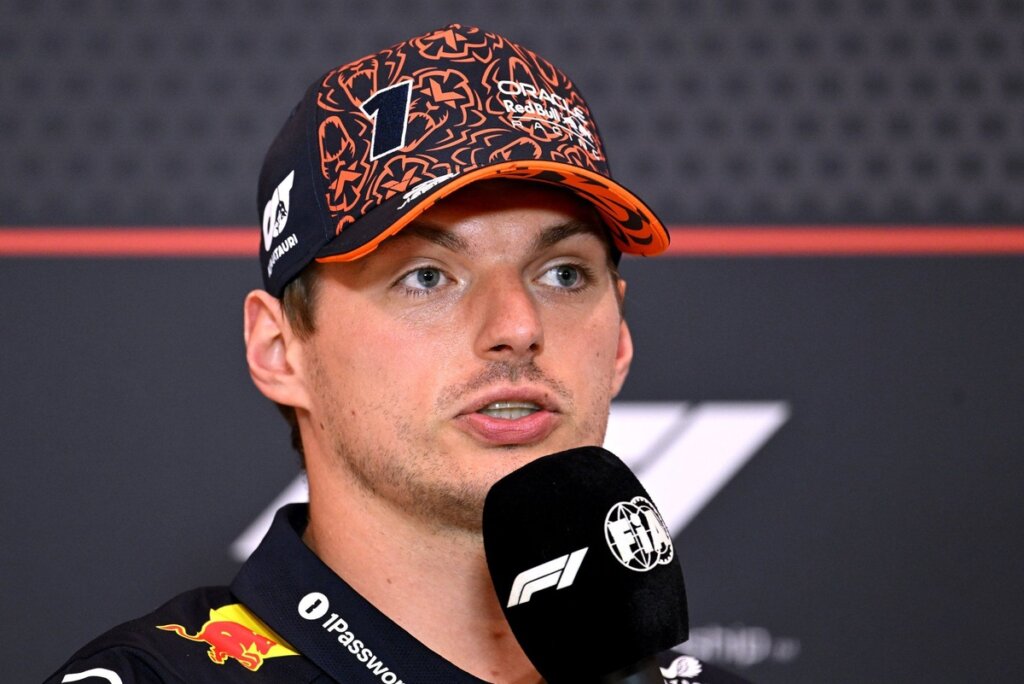Verstappen’s Silence Sparks Debate Ahead of the Austrian GP
As the Austrian Grand Prix approaches, Max Verstappen has once again made headlines-not for his racing, but for his reticence during a recent press conference. When questioned about the FIA’s regulations, the points system, and recent disciplinary measures, the reigning world champion responded with terse, “no comment” replies. His reluctance to speak openly has stirred discussions within the motorsport community about the current state of F1 governance and driver-FIA relations.
The Press Conference That Raised Eyebrows
During the pre-race media session, Verstappen was notably evasive. When asked whether he would modify his on-track behavior given that he’s just a single penalty point away from suspension, he shot back: “Are you joking? Is this some kind of trap? I get asked this question every weekend. I have nothing more to say.” His brief responses drew attention, highlighting a growing tension between drivers and the FIA over transparency and fairness.
Verstappen’s Shift to Caution in Public Statements
Later, during a more informal chat with Dutch media at Spielberg’s Red Bull hospitality suite, Verstappen clarified his earlier silence. He attributed his guarded stance to two main reasons: first, that the questions posed during the FIA press conference echoed those from the Montreal media day two weeks prior, and second, that he feels constrained from criticizing the FIA publicly.
“I enjoyed the press conference, honestly,” Verstappen remarked with a hint of sarcasm when asked about the FIA’s Austria session. “The questions were repetitive, so I chose to keep quiet. It’s easier that way-no need to get into trouble.” When pressed by Autosport about whether this cautious approach is driven by fear of repercussions, he confirmed: “Absolutely. We all know the rules now. There are questions you simply shouldn’t answer, even if you have an opinion. I have strong views-like the inconsistency in penalty points-but I keep them to myself to avoid penalties.”
The Regulatory Framework and Its Implications
Verstappen’s reticence is rooted in the wording of FIA regulations, specifically a clause in the latest racing guidelines. The FIA’s document, released just days before the Austrian GP, states that individuals can be penalized for “any words, actions, or writings that cause moral injury or damage to the FIA, its affiliates, or the sport’s integrity.” This broad language leaves room for interpretation, and Verstappen believes it discourages open criticism.
The relevant regulation, Article 12.2.1.f of the FIA’s International Sporting Code, also mentions fines of up to €5,000 for offenses committed in controlled environments, with harsher penalties possible for more serious violations. Given the vagueness of the wording, Verstappen prefers to stay silent, fearing that even honest opinions could lead to sanctions-something no driver has yet experienced for speaking out against FIA policies.
Will Dialogue Between Verstappen and the FIA Resume?
Since the Singapore GP, Verstappen has largely avoided official FIA press conferences, opting instead for private media interactions outside the formal setting. After receiving community service for using profanity during a media session, he has maintained a low profile in FIA-sanctioned events. When asked if he anticipates future discussions with the federation, he responded cautiously: “Maybe that will happen naturally at some point.” His tone suggests that ongoing silence might eventually give way to dialogue, but for now, he prefers to keep his distance.
The Broader Context: Drivers’ Views on Penalty Systems
Verstappen’s stance echoes a broader concern among F1 drivers about the fairness and consistency of the penalty points system. Several colleagues have publicly criticized the current rules, arguing that they lack transparency and can be arbitrarily applied. However, Verstappen’s approach is more reserved-preferring to avoid potential disciplinary action rather than openly challenge the system.
The Future of Driver-FIA Relations
The ongoing tension raises questions about the future of communication between drivers and the FIA. With Verstappen and others choosing silence over confrontation, the question remains: will there be a turning point where open dialogue becomes possible? As the sport evolves, balancing regulatory authority with driver advocacy will be crucial to maintaining trust and fairness on the grid.
In Summary: Max Verstappen’s recent media silence at the Austrian GP has spotlighted the delicate relationship between F1 drivers and the FIA. His cautious approach, rooted in regulatory fears, underscores the need for clearer communication channels and transparency within the sport’s governance. As the season progresses, the motorsport community will be watching to see if dialogue can be rekindled or if the silence signifies a deeper divide.

